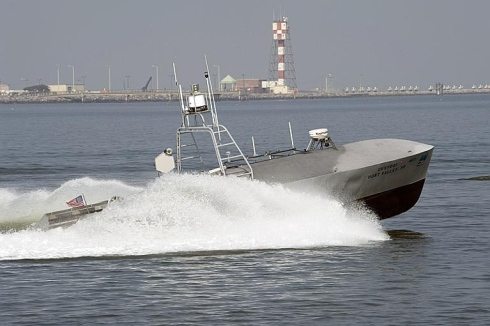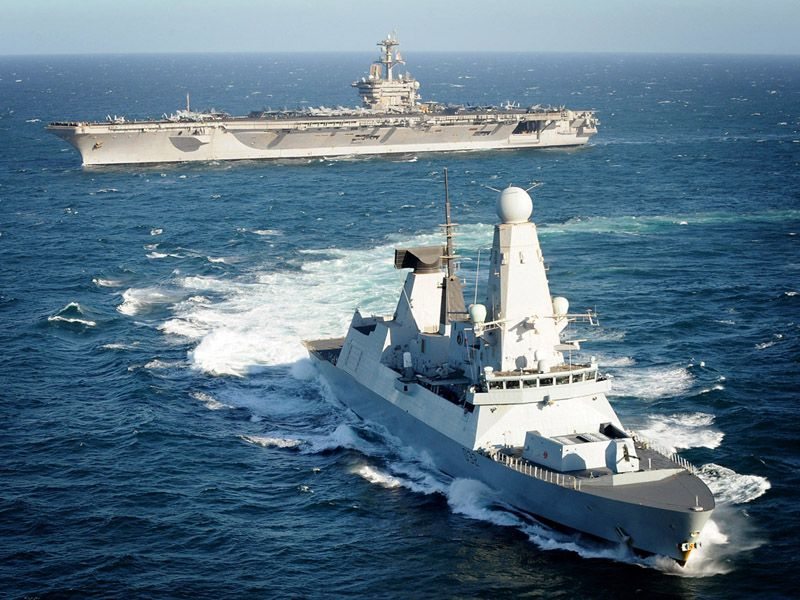More than two dozen technical and legal experts met March 20 and 21 to examine and discuss legal issues regarding the use of unmanned systems in a maritime environment at the Unmanned Maritime System Legal Workshop hosted by the U.S. Naval War College (NWC).
“This is the first time technical, unmanned maritime systems and international legal experts came together to discuss the role of these systems,” said U.S. Coast Guard Capt. Andrew Norris, a member of NWC’s International Law Department and the coordinator for the workshop.
Unmanned maritime systems are vessels designed to operate on-or-underwater without a human operator onboard, similar to drone aircraft. But according to Norris, there are questions about how they should be classified within maritime and armed conflict laws.
“First and foremost, what’s the status of these things,” said Norris. “Are they vessels? Are they warships? Are they torpedoes? How should unmanned maritime systems be classified under the law? That answer really drives a lot of the other issues.”
During the first day of the conference, invited participants discussed four main issues of unmanned maritime vessels: the status of various types of unmanned vessels, maritime “rules of the road”, maritime zone issues and law of armed conflict issues.
The importance of classifying what kind of object these unmanned systems was evident it the first day’s discussion.
“There are international rules that control how and when, for example, a submersible vessel can operate in another nation’s territorial sea,” Norris said. “So what laws apply for unmanned systems?”
But for a fleet commander in a combat situation, the more important question about how these things can be used in sea warfare and comply with the law of armed conflict was discussed.
“There were discussions about what level of autonomous decision-making you have in a system like this,” Norris said. “If the decision to fire a weapon is based on an algorithm that’s implanted in it, then how can a fleet commander use that asset and still comply with some of the law of war principles?”
The experts examined a scenario on the second day of the conference. During the scenario, unmanned vessels were being used in an innocuous role, such as surveillance. The scenario evolved to where unmanned vessels were employed in a combat role.
The findings of the two day conference will be published later this summer. However, Norris cautions that the intent of the conference was not to come to any legal ruling on the unmanned maritime vessels but help guide the discussions that legal advisors will have on their roles and missions.
“This is not going to provide answers to the fleet commander and his legal advisors,” Norris said. “But more importantly, it will help shape the discussion when those fleet decisions are made.”











